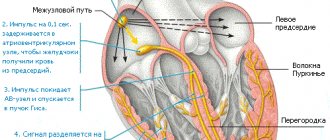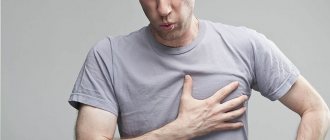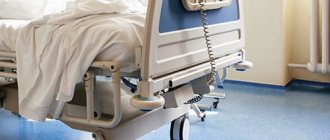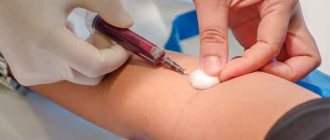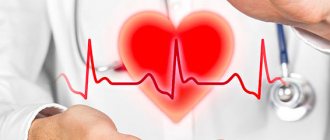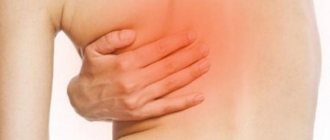Causes
The cause of heart rhythm disturbances is a violation of the sequence of excitation and contraction of the heart muscle. These failures occur under the influence of various factors: first of all, heart disease and endocrinological diseases; brain damage, including traumatic ones. Arrhythmia is provoked by taking certain medications, deficiency or excess of certain microelements, amino acids, and vitamins.
Chronic intoxication is of great importance (which, unfortunately, many people are simply not aware of). This includes smoking, drinking alcohol, taking drugs, living near highways and large enterprises. Anemia, consumption of certain foods and drinks (for example, coffee, cheese) play a certain role; arrhythmias are common in infectious diseases and febrile conditions.
Diagnosis and treatment
Any malfunction of the heart requires qualified diagnosis. There are often cases when a person complaining of bradycardia received advice... to lie down and relax, to lie down and rest. The result was an even greater decrease in heart rate, which required the professional intervention of resuscitators. The examination begins with the simplest methods: counting the number of heartbeats with determination of rhythm, measuring blood pressure, and examining the skin. The main method for diagnosing cardiac arrhythmias is ECG.
Sometimes, to clarify the group arrhythmia, 24-hour monitoring of cardiac activity and an esophageal ECG are performed. Depending on the type of arrhythmia, treatment is prescribed, which can be aimed at the cause of the arrhythmia (as in the case, for example, arrhythmia due to medication), and at reducing the frequency of attacks, if the underlying cause cannot be cured. Treatment can be conservative - with the use of appropriate medications, or surgical - the introduction of a pacemaker or other pacemakers.
Symptoms of heart failure
Symptoms of an irregular heart rhythm depend on what type of arrhythmia you have. The most common ones are:
- palpitations (a fluttering or fluttering feeling in the chest);
- dizziness;
- dyspnea;
- feeling tired;
- fainting.
There are many factors that can cause your heart rate to go wrong. The main causes of abnormal heart rhythms are:
- electrical impulses that come from a part of the heart other than the sinus node (the place in the heart where natural electrical impulses are normally generated)
- electrical impulses originate from the sinus node, but go to the lower parts of the heart;
- an abnormality in blood chemistry levels.
Some abnormal heart rhythms are inherited. If this is the case for this condition, your doctor may talk to you about checking other family members (this will help them know if they need treatment now or in the future).
Heart rhythm disturbances can arise from problems within the heart itself or be the result of abnormalities in the body's environment that directly affect the heart's ability to conduct impulses. The heart muscles become irritated when they are not filled with oxygen. This can happen during a heart attack in which the coronary arteries, the blood vessels that supply blood to the heart, are blocked. Lack of oxygen can occur when the lungs are unable to naturally extract oxygen from the air. Significant anemia or low levels of red blood cells reduces oxygenation of the blood and may prevent adequate oxygen delivery. Heart rate is associated with "electrical wiring" problems with the impulse pathways in the heart. This causes a “short circuit,” in which the heart speeds up and beats 150 or more beats per minute. The abnormality is triggered by a physical factor, such as that seen in Wolff-Parkinson-White syndrome, or occurs with changes in electrical physiology between several cells (in atrial flutter).
Having different rhythms throughout the day is absolutely normal for the human heart. It will be slower when you are resting, but may become faster when you are physically active or excited about something. Many people experience heart palpitations at some point in their lives and describe it as a feeling like everything inside is pounding or fluttering. For most people, an abnormal heart rate is unpleasant, but it is harmless and does not always mean obvious problems with the body. You may feel like your heart skipped a beat or had an extra beat - this is called an ectopic beat (very common, harmless, no treatment required).
Talk to your doctor about abnormal heart rhythms if:
- intermittent heartbeat lasts a long time and does not improve or worsen;
- Along with palpitations, you begin to feel weak or dizzy;
- you have a history of heart problems;
- you are worried about your heart palpitations.
The specialist will discuss your symptoms with you and decide whether an ECG is needed to assess your heart rate and rhythm.
However, the initial symptom of dysrhythmia is often palpitations, a feeling that the heart is beating too fast or slow, irregular, or skipping rhythm. The fluttering may be intermittent and will require medical intervention to resolve. Abnormal heart rhythm causes other symptoms of decreased cardiac output (the amount of blood the heart pumps out to meet the body's need for oxygen and energy). The patient may complain of dizziness, weakness, nausea and vomiting, chest pain and shortness of breath.
In critical situations, the patient may fall to the ground or lose consciousness. This may be due to a life-threatening pathology (ventricular fibrillation or ventricular tachycardia), due to rapid heart contractions (there is not enough blood pressure to supply the brain with oxygen). The same result can occur if the heart beats too slowly and insufficient blood pressure is generated.
Fast heart rhythms occur due to environmental problems that affect the heart. They may be intrinsic to the body, such as anemia, abnormal electrolyte or thyroid hormone levels, triggered by reactions to external stimuli (caffeine, alcohol, over-the-counter cold remedies, or stimulants such as amphetamines). For the heart muscle cell, all drugs look like adrenaline substances, which cause irritation of the cells.
Your doctor may recommend an ECG, echocardiogram, or electrophysiology test to help diagnose an abnormal heart rhythm. Depending on its type, the specialist will prescribe the use of the medicine to stop, prevent or control. If necessary, they may suggest a procedure such as cardioversion or catheter ablation, or surgery to insert an implantable cardioverter defibrillator or pacemaker.
Forecast
According to statistics, about 25% of the population suffers from one or another arrhythmia. The main types of arrhythmias with adequate treatment do not pose a direct threat to life, but for this it is necessary to know exactly the cause and type of arrhythmia. Treatment of arrhythmias is quite effective, subject to compliance with the medication schedule, exercise regimen, nutrition, and lifestyle.
DO YOU WANT TO QUIT SMOKING?
Then come to us for a marathon on quitting cigarettes. With its help it will be much easier to quit.
Why does the heart beat intermittently and other rhythm disturbances?
Have you been struggling with HYPERTENSION for many years without success?
Head of the Institute: “You will be amazed at how easy it is to cure hypertension by taking it every day.
Interruptions in the functioning of the heart - changes in the strength, frequency and regularity of contractions. Such disorders in medicine are called arrhythmia, which is a symptom of other diseases. Arrhythmia is usually not considered an independent disease; only sometimes a short-term and spontaneous arrhythmia is present in a completely healthy person.
- Causes
- Symptoms
- Treatment
Often, when there is a malfunction in the heart, a person experiences other symptoms, such as shortness of breath, pain, and others. Much depends on the cause of the arrhythmia, which can be not only problems with the heart itself, but even osteochondrosis, VSD, and sometimes a person feels problems after eating. It is important to understand why the heart rhythm is disrupted, how it manifests itself and what to do about it.
Our readers successfully use ReCardio to treat hypertension. Seeing how popular this product is, we decided to bring it to your attention. Read more here...
Causes
First you need to understand what types of arrhythmia there are, since some causes are characterized by one of them.
- Tachycardia. This is the name for beating too quickly, the number of beats in one minute exceeds 90. This condition can be a natural response to stress of an emotional or physical nature, therefore, it can appear even after eating or an increase in body temperature. However, tachycardia may indicate that the heart muscle is under constant stress and is not functioning well. If the heart rate accelerates constantly, for example, every day, it means that the heart does not have time to relax and rest, which increases the risk of a heart attack or coronary artery disease.
- Bradycardia. In this case, the heart, on the contrary, beats too slowly, less than 60 beats per minute. This is a natural state if the heart and vascular system is well trained, for example, in athletes when they are at rest. However, too slow a heart rate always threatens fainting, oxygen starvation of the brain, and even cardiac arrest.
- Atrial fibrillation. It manifests itself in the absence of effective contraction of the entire atrial myocardium. Atrial fibrillation is a sign of diseases of the cardiovascular system.
- Extrasystole. These are extraordinary contractions of the heart muscle, which in most cases is a response to excessive consumption of alcoholic beverages, strong tea, coffee, nicotine, and can also be a dangerous signal of active myocardial damage.
In diseases of the spine, for example, osteochondrosis, the vertebral artery, which runs along the spinal column, is pinched. Spasmed muscles or bone osteophytes compress the vessel, which increases intravascular pressure. The pathological condition leads to the development of tachycardia. In order for blood to be pumped well through a compressed vessel, the body and, of course, the heart have to put in more effort, which leads to an increase in heart contractions, which is how interruptions occur in the heart.
Read also: The harm of substance abuse for teenagers
Tachycardia in osteochondrosis is permanent, that is, it is present even at rest. When a person changes posture, it becomes more pronounced. Of course, if osteochondrosis is treated, tachycardia will decrease. But the effect will be noticeable after effective treatment.
If the heart muscle cannot cope with the increased load, extrasystole begins to develop. With osteochondrosis, it manifests itself in the later stages. At first, the rapid beating of the heart is short-term. If osteochondrosis is localized in the lumbar region, it has a strong impact on organs located in the abdominal cavity, for example, the adrenal cortex. Increased production of catecholamines begins, but they cause vascular spasm, leading to disruptions in heart rhythm and blood pressure.
VSD is another reason why a person may feel disturbances in the functioning of the heart. VSD has various symptoms that can make a person's life difficult, but it is not fatal. Many patients with VSD feel as if their motor stops and starts again. Often it really only seems like it. There were patients who claimed that their heart stopped for 10 minutes or even half an hour, but this was impossible.
There are cases when a person, after measuring his pulse, came to the conclusion that he had about 200 beats per minute, although in fact there were 70-80 of them, that is, within the normal range. There was even a study of patients with VSD, which showed that in almost half of the patients the heart beats normally and even well every day, that is, there are no rhythm disturbances. In fact, many of the phenomena that a patient with VSD complains about, for example, shortness of breath, pain, and the like, are only functional in nature. They are associated with disruption of the autonomic system, after treatment of which everything improves.
Of course, interruptions in the heart, shortness of breath, weakness, abnormal pulse values in patients with VSD can be real symptoms of a serious illness that has nothing to do with the autonomic system, especially if these signs are felt day after day. Therefore, timely diagnosis is very important not only for those who have VSD, but also for everyone who has encountered similar symptoms.
Interestingly, arrhythmia can occur in a person after eating. Moreover, the number of people who encounter this is growing. To understand why some people lose heart rhythm after eating, it is important to remember that the intensity of the beating of the vital motor depends on the state of the body and the conduction system. If normal impulse transmission occurs and the body receives the amount of oxygen it needs, there is no doubt that the number of strokes will be normal.
The digestion process leads to the fact that the activity of the vagus nerve increases, so the function of the sinus node is inhibited, namely, it is where impulses are formed that form heart contractions.
How does the heart react to this? His response is frequent beating, but the contractions are uneven due to the load.
When considering arrhythmia recorded after eating, it is important to remember that attacks can also be triggered by drinking alcohol. Studies have shown that alcohol leads to paroxysms of atrial fibrillation, which in especially severe cases can cause death.
These are common reasons why heart rhythm disturbances occur. Heart failure is also caused by the following factors:
- stress;
- diseases of the thyroid gland, nervous system, lungs, gastrointestinal tract, heart;
- anemia;
- oncology;
- atherosclerosis;
- inflammation of the heart muscle;
- viral infections;
- heart defects.
Symptoms
Depending on the cause of the arrhythmia, in addition to heart rhythm disturbances, other symptoms are observed. The most common are shortness of breath and heart pain.
Dyspnea is rapid, difficult breathing. In a calm state, a person performs approximately 16-18 breathing movements. If breathing quickens, a person begins to feel short of air, he cannot breathe deeply. In this condition, a person may have difficulty breathing.
Shortness of breath is often a sign of a serious illness, especially when combined with arrhythmia. Therefore, if shortness of breath occurs, you should immediately go to the hospital.
Sometimes shortness of breath can cause another symptom, pain in the heart, which can also manifest itself. The pain can be of a different nature and radiate to other parts of the body. Arrhythmia, shortness of breath and pain - these symptoms often occur together. After eating, with VSD and other conditions, weakness, dizziness and other signs that require attention may occur along with arrhythmia.
Treatment
What to do if a person discovers such unpleasant symptoms, whether they occur after eating, during physical activity, or in other situations? Go to the doctor immediately. It is impossible to describe the treatment, since it depends entirely on the results of the examination.
If your heart beats intermittently, you feel weak, it’s hard to breathe, you need to calm down. You can lie down and breathe some fresh air. In especially severe cases, you should call a doctor. Effective treatment will help get rid of unpleasant symptoms, which will improve the quality of life.
– by leaving a comment, you accept the User Agreement
- Arrhythmia
- Atherosclerosis
- Varicose veins
- Varicocele
- Vienna
- Haemorrhoids
- Hypertension
- Hypotension
- Diagnostics
- Dystonia
- Stroke
- Heart attack
- Ischemia
- Blood
- Operations
- Heart
- Vessels
- Angina pectoris
- Tachycardia
- Thrombosis and thrombophlebitis
- Heart tea
- Hypertension
- Pressure bracelet
- Normalife
- Allapinin
- Asparkam
- Detralex
What are heart failures?
An irregular heartbeat, called an arrhythmia, means it is beating too fast or too slowly with an irregular rhythm.
The basis of arrhythmia is a change in the conditions for the formation of excitation of the heart muscle, as well as a violation of the paths of its distribution. The causes of arrhythmia can be both functional disorders and severe organic lesions of the heart, in some cases, such as congenital structural features of the conduction system of the heart. The state of the nervous system also plays a role in the occurrence of arrhythmia, namely mental and emotional stress, causing changes in the pace, and often in the rhythm, of heart contractions, including in healthy people. Arrhythmia often occurs in people with diseases of the central and autonomic nervous system.
Under the influence of one or more reasons, the functions of the heart are disrupted:
- automaticity (automatic generation of impulses by cardiomyocytes by the pacemaker)
- excitability (the ability of cardiomyocytes to generate an action potential in response to stimulation)
- conduction (impulse conduction through the conduction system of the heart)
- contractility (contraction of contractile cardiomyocytes)
- refractoriness (electrical inertia of the CMC for some time after the impulse is carried out, which does not allow the return of the transmitted impulse and the imposition of a subsequent one)
- aberration (the ability to conduct an impulse along additional pathways of the cardiac conduction system)
The disorder may affect one or more functions of the heart at the same time.
It has a pulse system that tells you when to pump blood to your organs. If there are problems with this mechanism, then interruptions in heart rhythm may occur. Heart rhythm disorders are often called cardiac arrhythmias (this is technically incorrect, as in most cases there is a heart rhythm, but it is abnormal). Cardiac dysrhythmia may be a better term, although it is used much less frequently.
The pulse system of the heart has the following process. The sinus node, sometimes called the SA node, is a special group of cells. It is known as a natural pacemaker and sends an electrical signal to the chambers of the heart that tells them when to contract and push blood through. If the organ is working properly, the electrical signal will travel from the sinus node to the upper chambers of the heart (atria) and then to the lower chambers (ventricles).
Content:
- What are heart failures?
- Symptoms of heart failure
- Types of heart rhythm disturbances
The normal electrical pattern is known as sinus rhythm (usually produces a heartbeat between 60 and 100 beats per minute (bpm) when you are resting - at rest).
Interruptions can be caused by electrolyte abnormalities in the bloodstream, abnormal hormone levels (such as thyroid hormones associated with too high or too low thyroid function), and certain medications. Any abnormality in the electrical cycle in the heart that generates an abnormal rhythm—too fast, too slow, skipped, or irregular—is considered dysrhythmia.
Medicines for effective treatment of tachycardia
Tachycardia is a common disease in which there is an increase in heart rate. The heart always beats faster during strong excitement and physical work. But in these cases, this is the norm, that is, this is how the body naturally reacts to stress. For example, your heart rate increases when you walk or run quickly. Normally, it should recover within 5 to 10 minutes.
If the heart rhythm is not restored for a long time, or the rapid heartbeat has no apparent reason, then we are most likely talking about a disease. This is tachycardia, in which there is an increase in heart rate. This condition requires contacting a cardiologist. Even if the disease does not affect your well-being in any way, you should know that with this mode of operation, the main organ wears out faster. If you miss time, complications may develop, such as impaired blood supply to the brain, pulmonary edema, or cardiac arrest. A person with tachycardia of healthier people is at risk by drinking strong coffee or alcohol. In addition, some medications may cause an unexpected attack of tachycardia. Therefore, the disease must be treated, including taking medications.
Read also: Make vodka from alcohol proportions
What drugs are there for tachycardia?
Many medications have been developed to treat tachycardia, but only a doctor can decide which drugs to take in each individual case. Therapy depends on the causes of tachycardia, which is most often a symptom of other diseases. In this case, treatment is aimed at the primary disease. Drug treatment of tachycardia gives a good effect, but in search of a better result you have to try different remedies.
There are medications intended for symptomatic treatment. This is a large group of medications with different mechanisms of action to normalize heart rhythm. The dosage and duration of therapy is strictly individual and can only be discussed with a doctor.
The course of drug treatment is chosen only by the doctor, taking into account many factors. There are several types of medications that are used for tachycardia. They can be divided into two groups: sedative (with a calming effect) and antiarrhythmic.
Sedatives can be natural or synthetic. They normalize the functioning of the heart and nervous system, reduce the number of attacks.
Natural medicines
- Valerian. Available in the form of tinctures and coated tablets. The drug dilates the blood vessels of the heart, promotes rapid sleep, and slows the heartbeat. Valerian is a weak choleretic and antispasmodic agent. It has a moderate, slow-onset, but stable sedative effect due to alkaloids and essential oils. The effect occurs only with long-term and constant use (at least 1.5 months). Medicines may have contraindications, so you should not self-medicate. An overdose of the drug can lead to the opposite effect - overexcitation.
- Hawthorn tincture. Indications: atrial fibrillation and paroxysmal tachycardia. Reduces heartbeat and excitability, normalizes blood pressure, and has a calming effect.
- Persen is a moderate sedative. Available in capsules and coated tablets. It contains valerian, peppermint, lemon balm. Preparations based on these medicinal herbs reduce fatigue, irritability, nervousness, anxiety, excitability, help you fall asleep faster, and improve appetite.
- Motherwort. Medicinal plants have long been used to normalize the functioning of the nervous system. In pharmacies you can purchase drugs in tablets or in the form of alcohol tincture. Motherwort has a sedative and mild antispasmodic effect, normalizes heart rate, improves heart function, relieves insomnia and has virtually no side effects.
- Peony. Alcohol tincture relieves nervous tension, improves mood, and has a mild hypnotic effect.
Symptoms
In the case of moderate bradycardia (40 beats per minute), sweating, dizziness, headache, shortness of breath, and weakness are felt.
If the heart rate is even lower, fainting occurs as a result of brain hypoxia, since when the heart works slowly, little oxygen enters the brain. Children with a congenital heart rhythm disorder without concomitant medical support have impaired organ development and slow growth.
You should see a cardiologist if you notice a slow pulse and accompanying pain. Even if the examination does not reveal any disturbances, it is worth consulting a neurologist about disturbances in the functioning of the autonomic system.
The treatment prescribed by the doctor depends on the cause of bradycardia and the degree of its manifestation. In any case, many diagnostic procedures will need to be carried out. In case of severe bradycardia with frequent fainting, the option of installing a pacemaker is considered.
